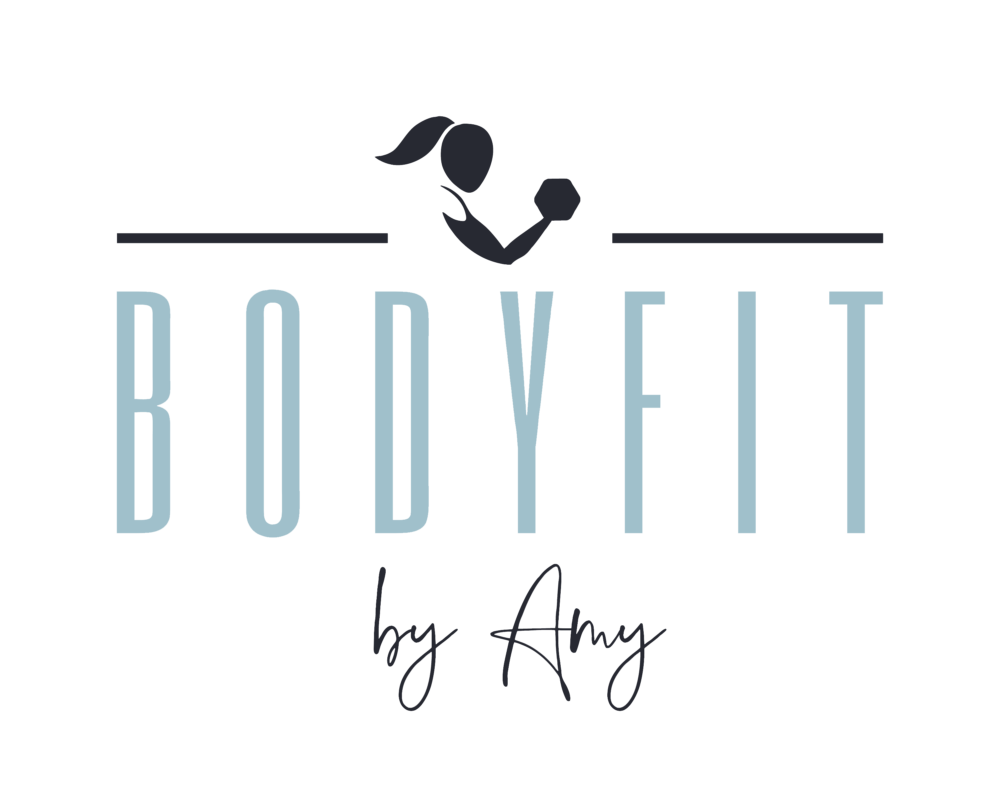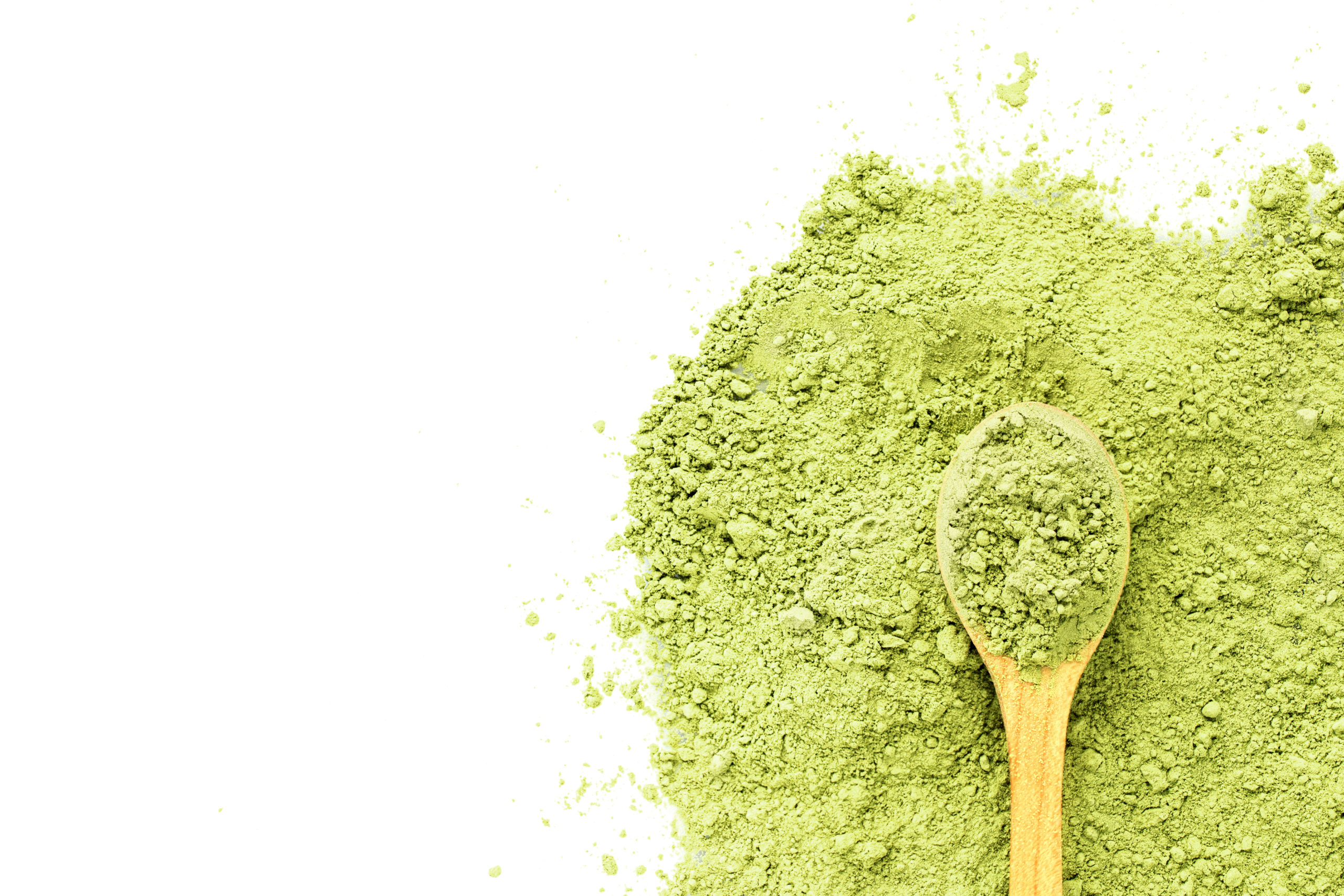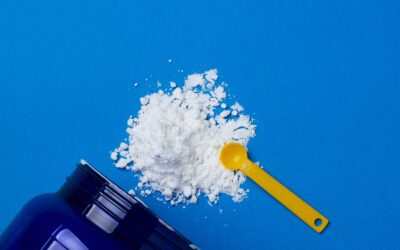If you’ve been on social media lately (mainly Instagram), you’ve probably seen an influencer, famous athlete, world-renowned olympian, or celebrity promoting a greens powder. Now that we are officially in the holiday season (AKA sweets and booze season), you may feel tempted to purchase a greens powder to cover any nutritional gaps. Companies like Athletic Greens (now known as AG1) and Amazing Grass have been advertising like crazy! But, before you hit that purchase button, let’s arm you with some information so that you spend your money wisely this holiday season.
What are green powders?
Greens powders are supplements made of dried and powdered green vegetables like kale, spinach, other leafy greens, seaweed, or edible grasses. Most greens powders contain a blend of multiple greens, and many brands include adaptogenic mushrooms, beets, probiotics, digestive enzymes, herbal extracts, and fiber. Most of these powder companies claim that their product will help you lose weight, feel energized, detoxify your body, and boost your immune system. But are any of these claims backed by science, or are they overhyped to take your money? Sadly, the latter is more accurate.
What does science say?
Not much. The people selling and promoting green powders make them sound like a miracle health transformer. There are some positive scientific studies on green powders. These studies found them beneficial at lowering blood pressure in people with hypertension and reducing oxidative damage in the body. But – guess what? These promising research studies were funded by companies that make and sell greens powders, so one must take these results with a grain of salt.
Let’s take a deeper look at all the claims that are made about green powders and evaluate whether they stack up or not.
- Alkalize and improve your blood pH = False! No beverage or food (or powder) has the power to alkalize you. Consuming a green powder will not affect your blood pH. Your body tightly regulates this (thankfully), so you don’t need to be concerned. If your pH levels were affected by food, they would fluctuate often, and you would die. Again, the body keeps tabs on pH levels, and it’s practically impossible for food to change the pH value of your blood.
- Detoxifies = False! No beverage or food (or powder) has the power to detoxify your body. While eating a nutrient-dense diet can help support your body’s natural detoxification processes, a powder will not cleanse your body. In fact, some of these powders contain high levels of certain compounds, which make your kidneys (your actual detox center!) work harder at trying to filter them out.
- Reduces blood pressure = Maybe true? One study (the author of this study is the founder of Biopharma, a company that sells a nanogreens supplement) found that drinking powdered veggies and fruits reduced blood pressure. Here’s the thing – most people mix their green powder in a tall glass of water or add it to a produce-packed smoothie and drink it in the morning. Do you know what we have plenty of science for? Hydration. Do you know what else we have lots of positive evidence for? Fruit and vegetable consumption. Dehydration has been linked to high blood pressure, so could it be that drinking the green powder increases your fluid levels, which improves your blood pressure? Suppose you are mixing the powder into a smoothie. Could the fruits and veggies in the smoothie be responsible for lowering your blood pressure? Yes, and yes. Still, there is always a possibility that the green powder could help lower your blood pressure since there are nutrients in there from the powdered and dehydrated veggies. But, more evidence is needed (not funded by the industry) to determine if this is true. In the meantime, you could save money by choosing actual veggies and water to support healthy blood pressure.
- Debloats and improves digestion = Many green powders contain added fiber, digestive enzymes, and probiotics, all of which impact your digestive health. We know probiotics are scientifically proven to support digestion. But, it’s difficult to know if the probiotics used in the green powders are made to withstand stomach acid and survive. I’d recommend choosing a high-quality probiotic (like this one) if digestion is your main reason for drinking powdered greens. The evidence on digestive enzymes is quite messy and unclear – most of them are a waste of money and ineffective. If you think you lack digestive enzymes, you should speak with your healthcare professional to discuss possible issues like pancreatic insufficiency or irritable bowel syndrome. Your caregiver can recommend high-quality and evidence-based digestive enzymes that have been proven to work. Lastly, we know fiber is pretty impressive, but you can have too much of a good thing. Many green powder companies add fiber compounds to their powders to promote them as “prebiotic-rich” or “gut-friendly.” Even though veggies naturally have fiber, most of it gets lost when making them into powder. This is why manufacturers artificially add fiber to make the powders sound impressive. The most common fiber compounds the companies add are inulin, chicory root, and apple pectin. While these are considered natural, it’s not the same as consuming plants in their whole, raw form with natural fiber.
- Boosts immunity = Partially true. These powders often contain added vitamins and minerals like vitamin C, which support your immune system. Also, there’s probably vitamin C naturally present from the powdered vegetables and/or fruits. A green powder is not superior to fresh fruits and vegetables when supporting immunity. Green powder manufacturers make the “boosts immunity” claim because they contain nutrients that support immunity like vitamin C. Here’s a thought. You could eat an orange and probably get a more adequate amount of vitamin C along with Hesperidin. Hespe-what?! Hesperidin is a powerful antioxidant found in oranges that has blood pressure-lowering, anti-inflammatory, and antioxidant effects on the body. It’s almost as if the real thing is simply better….and cheaper. And tastier. Hmmm…
- Boosts energy = Some powders have super high levels of caffeine or green tea extract to give you that energy boost that they claim to offer. Some powders have added vitamin B12, which does play a role in your energy levels. That being said, water plays a huge role in feeling energized. If you are mixing this in a liquid, you are getting hydrated, which will help you feel more energized. The bottom line? Water may be enough to improve your energy levels without excessive doses of extracts and caffeine.
- Helps with recovery and exercise performance = Many green powders add cherries, beets, and adaptogenic mushrooms to their formulas. Beets help your body produce nitric oxide, which aids in exercise performance. We also know that tart cherry juice can support exercise recovery. There are many claims that adaptogenic mushrooms may help reduce the body’s stress response and aid in recovery. But this research is still in its infancy, so we cannot say for sure. The supplement industry is not regulated, so we do not know how much beet and cherry is in a green powder. Some brands have 75 ingredients, so how many beets could possibly be there? Is it a speck? And would a pinch of beet or cherry do anything for you? Probably not. This leads me to the point I’ve been making all along – real is BEST! Make yourself a cherry chocolate smoothie with real cherries, or roast some beets for dinner.
Can this powder help me lose weight?
No. Green powders do not have special weight loss magic. But, let’s say that you replace your bacon, potato, cheddar burrito with a glass of water and powdered greens. What would happen? You would probably lose weight. Not because of the greens powder, but because you are eating fewer calories than you usually would. Here’s the other theory. When we begin our day with a tall glass of green juice, it can make us feel like we are starting the day on a healthy note, leading us to make other health-conscious decisions. Some people replace their sugary coffee with a tall glass of green powder mixed with water. People who do this start their day off well hydrated, which is always good. Suppose you are well hydrated first thing in the morning, and you feel like you started the day “healthy.” In that case, you may feel more energized and motivated to exercise, stand up throughout the day, and eat nutritious meals. All of these decisions would aid in weight loss.
Can green powders replace vegetables?
Most green powders claim that their product is the equivalent of several servings of vegetables. I know that sounds promising, especially if you are not a fan of veggies. But, green powders are NOT a replacement for fruits or vegetables. When it comes to eating fruits and veggies, it’s not only about getting the nutrients. Many nutrients work together in whole foods, and it’s how these nutrients work together that translates into nutritional benefits. To this day, we don’t fully understand how some of these nutrients work together, but we know that it’s beneficial to our health. Since we don’t know the mechanisms, powder companies cannot replicate that; therefore, you will never get the same effect as eating actual vegetables.
Are there any dangers to taking a green supplement?
Some people report digestive issues like cramping, gas, and diarrhea. This is especially common among those who struggle with digestive problems like IBS, Crohn’s disease, and ulcerative colitis. Remember, these companies like to add those extra fiber compounds in their powder to make the nutritional composition sound impressive. But, that extra fiber can be problematic for some.
The most concerning is contamination problems. Consumer labs took a look at what was actually inside of popular green powder supplements. They looked at 13 products, and FOUR of them were contaminated with dangerous lead levels. One had large quantities of arsenic, and another was contaminated with cadmium. Yikes!
Also, these powders are dangerous for your wallet! One of the most popular brands costs $99 for a 30-day supply. Oof, hard pass! I’ll stick to water and whole veggies instead. However, if the act of drinking the greens enables you to make healthy decisions throughout the day and you can afford it, then by all means.
Many green powders have vitamins and minerals from the powdered veggies. That’s cool. But, green powder companies frequently add additional vitamins and minerals to their powders. This is to make the product sound more impressive and nutritionally complete.
If you take a daily multivitamin or a supplement (like vitamin D or calcium) and you want to add a green powder to your day, speak with your doctor first. Many green powders claim to have all the vitamins and minerals you need in a day, plus some. Combining this with a multivitamin or supplement can make you get too much of certain nutrients. While vitamin and mineral toxicities are rare, they DO happen, and the common cause is over supplementing.
If it’s bogus, why do so many high-profile people recommend it?
Look, celebrities and famous athletes are not immune to falling for pseudoscience. If you are asked to promote a healthy product full of vitamins and minerals that will improve everyone’s health for a million dollars, would you do it? I assume many of these influencers/athletes/celebs have good intentions in promoting something they believe to be suitable for people. Still, it’s tough to know if you are promoting a good product without the appropriate nutrition science background and education.
Do I (the dietitian) recommend it?
You can probably guess that I do not recommend green powders. These products are expensive, and the claims are exaggerated and not fully backed by science. In addition, the supplement industry is not regulated, so you always run the risk of heavy metal contamination. I am a firm believer in the food first, supplement second philosophy. Supplements are meant to do precisely that – supplement what you may be missing, not replace.
That being said, if the act of drinking a green powder inspires you to make healthier choices throughout the day, then it may be a good fit. It still provides some nutrients and could help you fill some nutritional gaps. Just remember that it is not a miracle cure for anything. If you choose to purchase a greens supplement, choose one that does not have added sugars and is third-party tested. Athletic Greens and Superfood Greens by Ladder meet these criteria. Of course, check with your doctor if you take other supplements like a multivitamin to ensure you don’t risk vitamin or mineral toxicity.





Thank you for this overview of green powder and supplements in general. It seems that it always comes down to eating plenty of fruits and veggies and drinking plenty of water. No pricey supplements needed. I feel relieved 🙂
Thank you for this! I am very hesitant about claims for products that obviously have to be processed to be created. There are so many companies promoting variations of “healthy” supplemental products (with the hefty price you pointed out). I get close to getting pulled in by the claims- but am too cheap to commit, lol! Thank you for this article from a dietician perspective.
Hi Romaine! I hear you! Those companies are really good at branding and marketing – gotta give them that! With all those strong-looking athletes, immaculate videos, inspirational music, clean and modern websites, a promise for life-changing results, and A-list celebrities talking about the product, it’s easy to get sucked in. Stay hesitant! Good ole’ fruits and veggies and water are the best! They may not be trendy (lol), but they work best!
Hi Miwa! Haha, yes! 😅 It always comes down to the non-trendy, tried-and-true fruits, veggies, and water!
Vivian,
Thank you very much.
I learn so much with you
You are so welcome! Glad to hear that you are learning. 🙂
Hi. Speaking of powders. And if this is inappropriate in this blog I understand. But how do you feel about collagen powders? Is there a specific one you recommend?
Hi Billie! I addressed collagen supplements in this blog post: https://bodyfitbyamy.com/are-collagen-supplements-worth-the-hype-everything-you-want-to-know/ 🙂
What an excellent review of green powders (and supplements in general)! I really appreciate the evidence-based information, it is so important for people to understand what constitutes sensible choices and it is very challenging at times to see through all the fluff of advertising. Thank you for sharing, I look forward to your next very informative post!
Thanks so much for the kind words and encouraging comment! Sometimes I worry that my articles are a little too sciency and in-depth, so I am relieved and happy to see that you enjoyed the evidence-based information.
Thank you for that information! Do you feel like greens are way to safely cover your bases in terms of vitamins/minerals? If not, do you have a multivitamin you’d recommend?
Great question! It really depends. Some green powders have all of the vitamins and minerals you need in a day, but some do not. If a greens powder supplement claims to have all the vitamins and minerals you need in a day and is third-party tested, that would be a safe bet. I definitely recommend a diet rich in fruits and veggies and a multivitamin to fill any potential nutritional gaps. I recommend a multivitamin that does not have outrageous amounts of specific vitamins and minerals – some have 25,000% of a particular vitamin or mineral, and that’s crazy! Always look for a third-party tested (like USP, NSF) multivitamin. My top recommendation is Ritual Multivitamins, but they are a little pricey. The quality is impeccable, ingredients are traceable, and there are no excessive nutrients. It’s a subscription model, so that can be helpful to never run out. A cheaper and also reasonable option is Nature Made Multivitamin for Her.
Of course, choose one based on your needs. If you are a woman of child-bearing age and hoping to conceive at some point, pick prenatal. If you are a woman in the post-menopausal stage, choose one for that stage (like a 50+ or one without iron). Hope this helps and let me know if you have any additional questions! 🙂
Excellent, balanced article. Thank you.
You are most welcome! Glad you enjoyed it.
Thanks Vivian. Marketing can make us doubt what we get from real foods. You and Amy are awesome!!!! I learn so much from you.
Thank you, Vivian! I find all of your articles to be very informative & helpful.
Thank you SO much! So glad to hear that you found it informative and helpful.
Wow, they sure had me fooled. I’ve been drinking Vega with my soy milk almost every morning for years. It’s filling and the taste is so satisfying. But, like so many others, I counted on this for my greens.
Thanks, Vivian, for setting us straight. This is very informative. Now, I have to reevaluate my nutritional plan.
So glad you found it informative, Wendy! 🙂